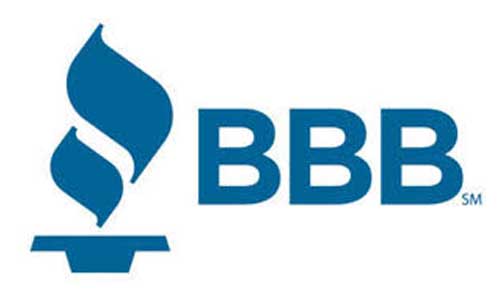ATLANTA — After a natural disaster, many people find that helping others brings out their best qualities. Unfortunately, this goodwill can also bring in contractors who take advantage of those who have suffered through a crisis. Better Business Bureau (BBB) provides tips for what to do after a damaging storm or tornado and warns residents to beware of “storm chasers,” out-of-town contractors soliciting business.
Once the storm has passed, cleanup and recovery efforts begin. Storm victims should never feel pressured to make a hasty decision or choose an unknown contractor. Make temporary repairs if necessary so you can take the time to choose a trustworthy contractor. Keep the following tips in mind to recover safely and effectively after the storm:
Assess the damage
- Assess the damage and take pictures.
- Contact your insurance company immediately. Inquire about policy coverage and specific filing requirements.
- Document the damage to your property (and autos). Take pictures and, if possible, video evidence.
- Only make permanent repairs once you get approval from your insurance company. Your insurer might only fully reimburse you for permanent repairs made with their authorization.
Clean and make temporary repairs
- Make minor repairs that will limit further damage to the home. Save all your receipts if you must make temporary repairs to protect your home from the elements.
- Wear protective clothing. Long pants, a long-sleeved shirt, and sturdy shoes. Be cautious!
- Learn more about how to clean up after a tornado from the Red Cross, including the supplies you’ll need and how to handle fire hazards such as gas, electricity, and chemicals.
- Be on the lookout for price gouging. Report instances to your local BBB and Attorney General’s office.
Hire a contractor
- Get references. Get referrals from friends and relatives and check BBB.org for ratings and reviews on contractors in the area.
- Do your research. Local and national companies may do a fine job with your storm damage repair needs, but if you choose to do business with someone who is not local, be sure to understand who will be taking care of any service needs that may arise after the completion of the project.
- Learn about storm chasers. Storm chasers are businesses that follow storms hoping for a quick buck. Research anyone who offers you unsolicited assistance carefully.
- Contact your insurance company. Ask about your policy coverage and specific filing requirements. Save all receipts for food, temporary lodging, or other expenses that may be covered under your policy. Your insurance company may also have recommended contractors.
- Resist high-pressure sales. Some storm chasers use tactics such as the “good deal” you’ll get only if you hire the contractor on the spot. Be proactive in selecting a contractor and not reactive to sales calls on the phone or door-to-door pitches. Disaster victims should never feel forced to make a hasty decision or choose an unknown contractor.
- Be especially careful of door-to-door contractors. Many municipalities require a solicitation permit if sales people go door-to-door. Ask for identification. Check their vehicle for a business name, phone number, and license plates for your state or province.
- Don’t sign over insurance checks to contractors. Get an invoice from the contractor and pay them directly (preferably with a credit card, which offers additional fraud protection over other forms of payment). Don’t sign any documents that give the contractor any rights to your insurance claims. If you have questions, contact your insurance company or agent.
- Be wary regarding places you can’t see. While most contractors abide by the law, be careful allowing someone you do not know to inspect your roof and other areas of your house. An unethical contractor may actually create damage to get work. The same goes for attics, crawl spaces, ducts, and other places you cannot easily access or see for yourself.
- Ask about preventive features and installations. Check with your contractor about adding tornado-resistant features to help protect against future damage during the repair process.
Know what you sign
- Read and understand anything you are asked to sign. Avoid signing an “estimate” or “authorization” form before you hire a particular contractor.
- Get a written contract agreement with anyone you hire. It should specify the work, the materials used, and the price breakdown for both labor and materials.
- Any promises made orally should be written into the contract, including warranties on materials or labor.
- Make sure you know the terms and conditions if you choose to cancel a contract.
- Understand the terms and conditions and get copies of any warranties and guarantees.
- A contractor should be responsible for obtaining all necessary permits, not you.
Review contracts, deposits, and payments
- Make sure the contract is specific. Be sure the contract specifies the schedule for releasing payments to the contractor. Ask for a start and end date for the work to be done.
- Never pay in full in advance. Do not pay with cash.
- Don’t make a final payment or sign a completion agreement until all work is done to your satisfaction.
Additional resources:
- BBB storm resources
- Tips to help you find a reputable tree service company you can trust.
- Find a contractor near you and read BBB’s tips on hiring a contractor.
- Report scams to BBB ScamTracker.


![Validate my RSS feed [Valid RSS]](https://web.archive.org/web/20240108205913im_/https://ocgnews.com/wp-content/uploads/2022/07/valid-rss-rogers.png)


